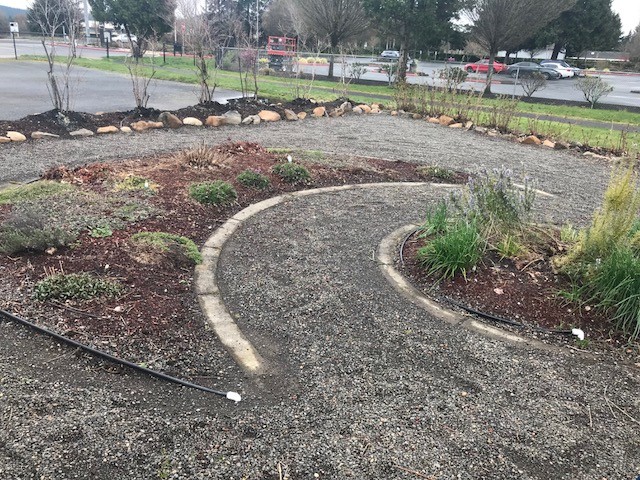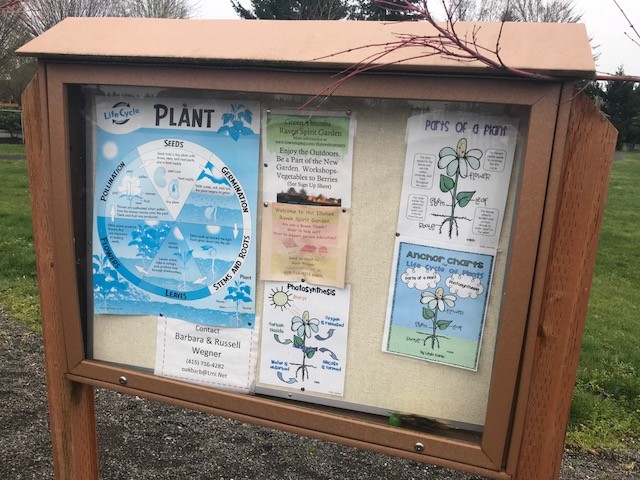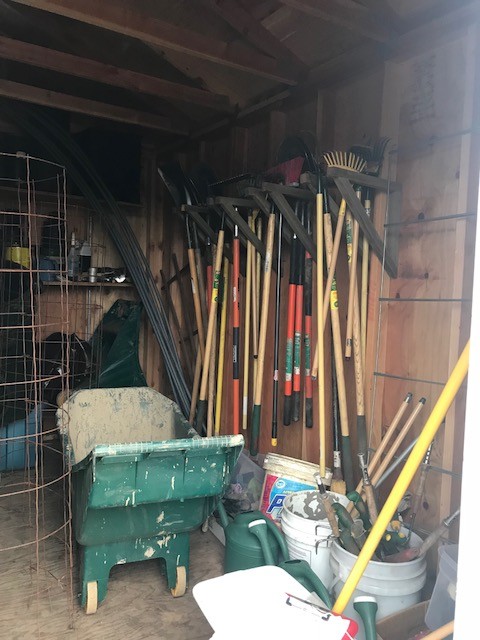Clark County Green News
Master Gardener Open School Garden Event, Saturday May 19th at River HomeLink
WSU's Extension's Master Gardener program has been looking for ways to support school garden coordinators and Green Team leaders. This year they began hosting Open School Garden Events at various gardens around Clark County. Last month we got the insider's tour of Illahee Elementary's garden. Teachers, Green Team leaders, parent volunteers, Master Gardeners and gardening enthusiasts gathered to learn about Illahee's successes and struggles. Garden coordinators, Barbara and Russ, shared their tips for volunteer recruitment, seed starting, integrating gardening lessons into class time, tips for securing donations, etc. Kris Potter from River HomeLink had seed packets available and also shared a free online resource for garden planning. Look for more tips shared later in this blog post.
One of the best parts of the event was the sharing and collaboration between school garden coordinators. That's one of the goals of these events - to foster connection and resource-sharing among garden coordinators.
Don't miss the next Open School Garden event, May 19th at River HomeLink from 10am-noon. Kris Potter will provide instruction on Square Foot Gardening and writing lesson plans/planning garden activities for classes. RSVP to Erika Johnson at Erika.d.johnson@wsu.edu or (360)397-6060 x 5738.
Don't miss out on this last Open School Garden event of the year! Use your school garden projects to certify as a Washington Green School! Look for more resources and the certification Report Card here.
More tips shared at the Open School Garden Event at Illahee:
- Working with small groups can be much easier than larger ones (30 or less). We rotate kids through in 20-minute rotations.
- Tiny seeds can be hard to work with.
- Russ uses a Yahoo group to round up volunteers. Like that they can upload photos, links.
- Says that sometimes less structure results in more participation.
- Will send out a "weather report" to volunteers requesting additional watering if very hot.
- Have found that doing less succession planting makes things easier especially with regard to watering.
- Having a drip irrigation watering system has been a huge factor in our success.
- Our educational programming includes five offerings a year, including; spaghetti squash where we harvest and bring in cooked squash the kids can string up and make into spaghetti, a potato dump in the fall, seed starting.
- We use the school bulletin to the word out about the garden and opportunities to utilize it. Other ideas for rounding up help, generating interest are school fairs, book fair, science fair, etc.
- We have presented at the school's regular teacher meetings, to encourage use of the garden.
- We find it helpful to have a key point person in the school advocating for us.
- We are both in the PTA which has a line item for the garden.
- We use Austrian peas as a cover crop in the winter.
- Among our challenges are "mystery" harvesters who take produce, like blueberries.
- Boy Scouts can be really helpful in garden construction.
- Take advantage of the businesses around your school for donations and support.
- Walmart – go in on the first of the month and try to be the organization that gets their monthly $50 donation.
- Shortys, ShurWay – offer discounts for supplies.
- Kris Potter makes suggestions on classes and how the garden might tie into their curricula. (Example, American Girls and a victory garden or Pioneer garden).
- Spring is a good time to introduce teachers to the garden since there are many life science unit possibilities.
- Whole Foods grants are available.
When you subscribe to the blog, we will send you an e-mail when there are new updates on the site so you wouldn't miss them.






